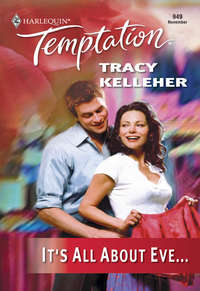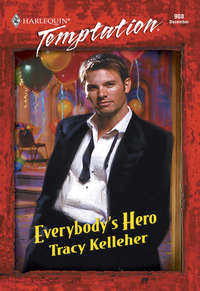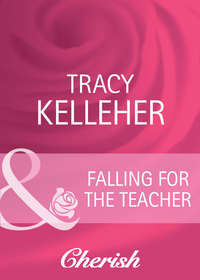
Полная версия
On Common Ground

You never forget the one who got away
When Lilah Evans graduated from Grantham U, she was ready to leave college behind and change the world. Now, at a crossroads, she’s doing something she never wanted to do: attending her ten-year reunion. And that means running
into Justin Bigelow.
A decade ago, Justin was the big man on campus—Mr. Self-Involved himself. So why did he nominate Lilah for the Distinguished Alumni award? One thing that’s clear this nostalgia-filled weekend, he isn’t the partying jock she remembers.
What’s also clear is that the attraction that used to simmer between them is now more intense—and impossible to ignore. With the stakes higher, do they finally have the courage to go for it?
He bit back a smile and the sudden impulse to take her in his arms
Instead, Justin enjoyed the warm glow that permeated his being and had nothing to do with the sun beating through the car windows.
Lilah cocked her head and stared at him.
Justin held his breath.
She wet her lips.
The only noise was the whizzing of traffic outside and the occasional honk of a car horn. Not to mention the violent thumping of his own heart.
This would be it...their first kiss. Finally.
Dear Reader,
I live in a small college town. Every spring, the azaleas bloom in candy cane colors, the daffodils and tulips blanket the lawns and flowerbeds and the spirited alumni return for their class reunions. These annual rituals bring together the bittersweet memories of past joys and disappointments as well as the promise of beautiful and fulfilling things to come—all the elements of a great romance, in my opinion. Is it any wonder that I had to write a series of stories set during Grantham University’s reunions? I hope you enjoy reading this first installment as much as I took pleasure in writing it.
Let me mention the inspiration for my heroine, Lilah Evans. I happened to read an op-ed piece by New York Times columnist Nicholas Kristof on the organization Run for Congo Women and its founder, Lisa Shannon. As a woman and a mother, I couldn’t help but be moved by Ms. Shannon’s valiant efforts, and I knew I wanted to create a heroine who embodied her spirit. While I was influenced by elements of her story, the characters and events in my book are, of course, strictly fictional.
As always, I love to hear from my readers. Email me at tracyk@tracykelleher.com.
Tracy Kelleher
On Common Ground
Tracy Kelleher

ABOUT THE AUTHOR
Tracy sold her first story to a children’s magazine when she was ten years old. Writing was clearly in her blood, though fiction was put on hold while she received degrees from Yale and Cornell, traveled the world, worked in advertising, became a staff reporter and later a magazine editor. She also managed to raise a family. Is it any surprise she escapes to the world of fiction?
Many thanks to Renée Dinnerstein,
an inspired teacher. You’re a good sport.
For her insights into early childhood education,
see Renée’s blog, Investigating Choice Time: Inquiry, Exploration, and Play, at investigatingchoicetime.com.
This book is dedicated to Peter and James:
two great guys who are generous, smart and funny.
Plus you give the best hugs!
Contents
CHAPTER ONE
CHAPTER TWO
CHAPTER THREE
CHAPTER FOUR
CHAPTER FIVE
CHAPTER SIX
CHAPTER SEVEN
CHAPTER EIGHT
CHAPTER NINE
CHAPTER TEN
CHAPTER ELEVEN
CHAPTER TWELVE
CHAPTER THIRTEEN
CHAPTER FOURTEEN
CHAPTER FIFTEEN
CHAPTER SIXTEEN
CHAPTER SEVENTEEN
CHAPTER EIGHTEEN
CHAPTER NINETEEN
CHAPTER TWENTY
CHAPTER TWENTY-ONE
CHAPTER TWENTY-TWO
CHAPTER TWENTY-THREE
CHAPTER TWENTY-FOUR
CHAPTER TWENTY-FIVE
CHAPTER TWENTY-SIX
CHAPTER TWENTY-SEVEN
CHAPTER TWENTY-EIGHT
CHAPTER TWENTY-NINE
CHAPTER THIRTY
CHAPTER THIRTY-ONE
CHAPTER ONE
March
THE VILLAGE WOMEN STOMPED their bare feet to the rhythm of the drums. They kicked up dirt that collected on the hems of their long cotton dresses, making an earthen border of red clay. The bright, bold patterns of their bandannas created a swirl of color. And the joyous sounds they intoned combined in a song in celebration.
To say the least, Lilah Evans was a long way from home.
You couldn’t get much farther from Orcas Island, off the coast of Washington State, than the remote jungle of the Democratic Republic of Congo. But whatever the distance—indeed, whatever the differences—the primal African beat had a universal appeal. And a special one for Lilah.
Because the women who sang and danced? They were singing and dancing for her.
It was a gift from the hearts of women who owned almost nothing and had lost so much—husbands and children and homes in the ongoing civil war.
Growing up on an idyllic island, surrounded by fishermen, artists and executive escapees from Seattle, Lilah wouldn’t have been able to imagine that people were capable of such cruelty. After her schoolteacher mother had read her Grimm’s fairy tales, she’d had nightmares for weeks. To this day, she never looked at gingerbread quite the same way.
So when Esther, her good friend among the Congolese women, had told her what had happened to her, her soft voice mingling with the smoke from the kitchen fire in her small hut, Lilah had cringed.
“Lilah, they came one day—this was after they had raided the village and killed my husband and the other men. And taken my oldest son,” Esther had explained. Her tone was flat, but raw emotion cut the sentences into staccato clips. “They were crazy. The militiamen—crazy on drugs. They went from hut to hut. They raped the women, young daughters no more than children, grandmothers—toothless grandmothers. Then they came to me.” Her voice faltered. “They took me, too, in ways not normal. They made sure that my children were watching. It was a game, a sport, n’est-ce pas? When they were done, they laughed. Then they started to talk among themselves. I knew there was more to come. I tried not to show any fear. That was what they wanted of course.”
“You don’t have to say any more,” Lilah remembered telling her friend. She was too old to hide under the covers, but that was what she wished to do. Barring that, she wished she could cover her ears with her hands. But she didn’t. She owed it to Esther to listen, to be brave in any way she could be.
And her friend finished the story, a story so horrific that now, after the fact, Lilah still blotted out the details of how Ester came to lose her leg and what had happened to the rest of the family. What she did recall vividly was her own reaction—crying and reaching out to her friend. Her own words, thinking back now, seemed so self-centered. “I don’t think I would have been able to withstand that. I don’t know if I am strong enough,” she had said.
And Esther had placed her thin hand, as light as a bird’s, on Lilah’s arm and replied, “You do it because you have to. You have to think of tomorrow. There is no choice.”
But for Lilah, there had been a choice. Back in her senior year of college, suffering from the flu, she’d wrapped herself in a quilt on her couch and killed off a dozen boxes of Kleenex, while flipping through the channels on the TV. By chance she landed on this daytime talk show, the sort that she would have never admitted to watching. It carried a heart-wrenching report on the plight of Congolese women.
By the time the program broke away for a commercial for a new women’s deodorant, Lilah had made that choice. She decided to enlist other women to help provide health care to women and children in the remote areas of Congo—places where medical providers were practically unheard of.
And so Sisters for Sisters was born.
It was one thing to find a cause. It was another to carry it out. First had come the efforts to establish a base of operations in the capital of Kinshasa, staffed with a part-time office manager and a nurse who volunteered when she wasn’t working at the hospital. One year later, Lilah got the first traveling clinic up and running. Equipped with medical supplies and a portable lab, that team of two nurses and a female doctor set out to war-torn villages in eastern Congo. After three years, the organization was finally able to pay the nurse in the main office and had added another two clinics, then two more. In total, five traveling clinics were making the rounds—true, often on a shoestring budget and understaffed, but at least they were providing services.
Through her own outreach efforts, Lilah had also coordinated field operations with a group of volunteer doctors, and this partnership helped increase much-needed manpower and opened up Sisters for Sisters to larger funded studies. Now ten years later, her organization had seen both ups and downs—plenty of downs—but she was still unwilling to give up when there were good people like Esther suffering. But there were times when Lilah found it almost impossible to follow Esther’s credo and “think of tomorrow.”
Lilah shook her head. Tomorrow could wait, especially when this moment in time was perfect. Today, Esther was dancing joyfully with a prosthetic leg thanks to Lilah’s efforts.
The music ended. The performers and villagers erupted in a chorus of cheers.
Esther approached Lilah, her gait awkward but confident. She hugged her. “C’est pour toi.” “It’s for you.”
“C’est fantastique!” Lilah exclaimed in French. The language was a vestige of colonialism, but it was still the common language spoken in Congo. “Tu m’as donné un cadeau énorme! Merci bien.” “You’ve given me a wonderful gift. Thank you so much,” she said in her less than fluent French.
“But it is we who are thanking you, ma petite soeur, my little sister,” Esther said. “We are all sisters helping each other, mais non?” She smiled and her voice held a hint of teasing.
That was another of Lilah’s choices—the whole sibling concept.
Her idea for raising money was to hold 5K road races for women where each participant or “sister” sponsored a “sister” in Congo. The idea had taken off. Now her nonprofit organization had more than twenty local affiliates that sponsored fun runs and competitive races almost every month, all across America. Plans were already set to branch out to Europe and Australia.
But while these runs remained the backbone of Sisters for Sisters’s funding and a way for women to “actively” participate in the organization, Lilah recognized the limitations of races as the sole source of revenue. As a result, much of her time was spent writing grant proposals to funding agencies and foundations. This had led to a collaboration with a Doctors Without Borders type of operation to provide cell phones to women in rural villages, thus allowing them to obtain long-distance medical help. Similar programs in other countries, using towers and satellites that the military or World Health Organization had put in place, were already up and running.
Here at last was a way to supplement Sisters for Sisters’s meager staffing. So far only a pilot program in a few locales, including Esther’s village, had been funded, and if they were going to expand, they’d need more money. Lilah figured she’d have to give up on sleep altogether to get out more grant applications.
As if that weren’t enough to worry about, after a race two months ago in Poughkeepsie, New York, a woman had approached her who was a senior VP at a large investment house. She wanted to help set up a local banking system so that women could establish savings accounts to better the lives of their children.
Lilah felt overwhelmed. What did she know about banking? Microfinancing sounded like a good idea, but was it something Sisters for Sisters should be affiliated with? They always had been associated strictly with medical care. On the other hand, if she said no, would she be turning down an opportunity too good to miss? After all, the link between improved standards of health and financial well-being, not to mention better education, was well documented.
But all these questions would simply have to wait. Now she reveled in the warmth radiating from Esther’s skin as Lilah embraced her “sister.” A late-afternoon shower started to fall, heightening the smells of the village and the jungle.
Esther broke away from their hug and looked to the skies. “It’s time for the feast. It is good we have the school to keep us dry.” That was something of an exaggeration. Made of sticks, the school consisted of a thatched roof and dirt floor.
Esther clapped for her three remaining children to come, and with her head held high she clumped along on her artificial leg. She nodded for Lilah to follow.
Lilah joined the procession, smiling with the thought that she resembled one of the baby ducks following their mother in the children’s book Make Way for Ducklings.
A cell phone rang.
All the women reached into the deep folds of their dresses. Lilah had to laugh. It was a sign of progress that the towers were functioning, and that women were growing familiar with the equipment even though the likelihood of receiving calls was remote. Still, given the loudness of the ring tone, Lilah knew it was for her. She held her phone aloft to let the other women know, then rushed through the raindrops into Esther’s mud hut. “Hello,” she answered. Very few people outside her organization and her family had her number.
“Lilah, it’s Mimi.” The voice on the other end of the line belonged to Mimi Lodge, Lilah’s roommate from college. Always outspoken and very smart—some might say too smart for her own good—Mimi had gone on to be a television news correspondent.
“Talk about a voice out of the blue. Where are you calling from this time? Chechnya? Afghanistan?” Lilah asked. If there was a hot spot in the world, chances were that Mimi was there.
“Close. Waziristan.”
Lilah cringed. People sometimes questioned her sanity about traveling to Congo, but Waziristan? The northwest region of Pakistan was a known stronghold of terrorists. “Promise me you’re calling to tell me you’re safe,” Lilah implored.
“Not to worry about me. I’m in my element. It’s you I’m calling about—with news.”
“Don’t tell me—actually do tell me—that someone has decided to give Sisters for Sisters millions of dollars after seeing your piece on TV?” she asked.
“No, but there’s the possibility.”
“I’m always open to possibilities, long shots, even highly unlikely probabilities.”
“It’s like this. Seeing as you’re such a hard woman to track down, the alumni office of our illustrious alma mater, Grantham University, contacted me through my television network. They were hoping I could hunt you down directly.”
“Oh, please, there is no way I’m making a contribution to Annual Giving. I barely make enough money to pay the rent on my hovel of an apartment—and I use the term hovel generously,” Lilah decried. After college, she’d landed in Brooklyn, and for some mysterious reason that only the gods of real estate understood, her block had defiantly escaped the rampant gentrification that had swept the rest of the outer borough.
“Actually, it’s the other way around. They want to give you something.”
“You’re kidding me, right?” Lilah ran her hand through her chestnut-brown hair, which despite the practical clip holding it back in a ponytail, was frizzing madly in the rain and humidity.
“I kid you not. Apparently, the feature I did on you actually penetrated the mostly deaf ears of the ivory tower powers-that-be. Now the university wants to honor you with a big alumni award at Reunions this June. Who’d a thunk it, heh?”
Lilah knew that Mimi didn’t harbor any great fondness for Grantham despite her family’s long history of involvement and support for the Ivy League institution. Nor was Lilah particularly the Reunions “type.” What was the point of rehashing your college days? Or seeing people from your past you really could do without? She could think of one person in particular—boy, could she ever. Then there was the more fundamental anxiety. Ten years out—had she measured up to her own expectations? And the more troubling thought, If I accept the award, will they figure out I’m no longer some sterling idealist?
But those doubts were for her ears alone—something she’d have to work out. So Lilah retorted with the slick sarcasm that so often substituted for wit and intelligence among her fellow Grantham alumni.
“So why exactly would I want to wax poetic about my time at that dyed-in-the-wool chauvinist bastion?” she asked, using Mimi’s withering expression for Grantham. “I mean, can’t I just accept the award without showing up to Reunions? ’Cause I’m not totally convinced I can stand there with a straight face, listening to the university president give some rah-rah speech about all my good works somehow being an outgrowth of that special Grantham spirit. And the thought of rubber chicken served under a tent by the boathouse? Please. Is there anything worse? Oh, right—sleeping in a dorm room all over again.”
Truth was, she’d die for a dorm room right now. Tonight Lilah would be sleeping on the dirt floor on a thin straw mat. Not that she was complaining, mind you, when she had so much compared to the villagers around her.
Speaking of which, Lilah angled to the side to let one of Esther’s daughters carry an earthen platter of baton di manioc, boiled palm leaves filled with a paste made from starchy manioc tubers.
“I feel your pain, really I do,” Mimi responded from thousands of miles away. She, too, had mastered the glib speak. “But look at it this way. Does Miss America get her cr-own in absen-tia?” The satellite line had a slight delay, and the transmission sputtered.
“I get your point. I get your point,” Lilah replied. “But aren’t Reunions in June? That’s…that’s not going to work out. Our first major fundraising race in Europe is at the beginning of that month—in Barcelona. I couldn’t possibly miss that.”
“I’m pretty sure they’re at the end of June, but, c’mon. This is Mimi here. Your bosom buddy? You and I both know you’re manufacturing excuses. The real reason you don’t want to go back to Reunions and accept this award is Stephen.”
Lilah hadn’t spoken her ex-fiancé’s name in almost ten years. And she wasn’t about to start now. And why bother to rail against the cruelty of love when her friend flat out didn’t believe in love? Or so she had claimed many a time over. Too many times over, Lilah sometimes thought.
“From your silence, I presume I hit the nail on the head. Well, let me tell you. I have just one thing to say in response.”
“Grin and bear it?” Lilah offered.
“Oh, please. What do you take me for? A leader of a Girl Scout troop? My kind of pep talk is…” She proceeded to string together several swearwords in a highly creative and visually interesting fashion.
Crude, but effective, Lilah couldn’t help thinking. “So you really think I should go, then?” she asked.
“Yes, of course I think you should go. Not only do you deserve all the praise in the world for what you’re doing, you’ll have those old coots eating out of your hand. They’ll see this brilliant, cute young woman, and they’ll immediately feel the need to help. The next thing you know, they’ll be writing monster-size checks to support your work. You might even think about upping your own salary from near poverty line to something where you could afford to go to a decent hair salon.”
“Hair salons? They still have them?” Lilah asked facetiously. Reflexively she fingered her bangs, slowly growing out from her last feeble attempt at giving herself a cut.
The light shower had turned into a thick curtain of rain, and the sound of drops hitting against the thatched roof formed a steady rumble. The red dirt on the floor was already transforming into a rusty-colored slime, the same mud that coated the soles of her hiking boots.
From her position in the doorway of the hut she could see Esther, along with two other women from the village, cooking rice, beans, bananas and more manioc. Through the haze of smoke she noticed two large cauldrons cooking meat—probably chicken and goat. Today had to be special if meat was on the menu.
These women who had suffered so much were unfailingly generous. Who was she to balk at attending some awkward ceremony and meeting a few strangers at Reunions if it meant helping them out?
Lilah rubbed her sticky palm down her sundress. The outfit was a concession to the festivities, but she’d paired it with her usual hiking boots because there were too many poisonous snakes for her to consider wearing sandals. Not a great look but always practical.
She exhaled through her mouth with resignation. “All right. I hear the wisdom of your words. Just tell me whom to contact about setting up my triumphal return to our beloved alma mater. And in the name of a good cause—and good people—I promise to show the proper humility and speak about the urgency of the problem.” She paused, her mind working on overdrive. “But I have one condition.”
“Hey, I gave you prime time network exposure. Don’t expect me to open my meager checkbook, as well,” Mimi protested.
“I wouldn’t think of it. I know the prices at the salon you frequent. No, my request—no, my ultimatum is this. I’ll go provided you come, too. If I’m going to give a convincing performance for a day—”
“We’re talking days, bubby,” Mimi interrupted.
Lilah groaned. Oh, yeah. Grantham University never did anything by half measures. Their Reunions lasted three days and were scheduled immediately before commencement ceremonies, thus cementing a lifelong hold on graduating students.
Lilah cleared her throat. “Okay, but if I am going through with this charade, I think it’s only right and proper that I have moral support. And nothing says moral support like a forceful female friend close at hand.”
The metaphorical clock ticked away in silence until Lilah heard a sigh. “All right,” Mimi agreed. “Only for you will I set foot on Grantham, New Jersey, soil. I suppose that also means I won’t be able to avoid putting in an appearance at the family manse, will I?”
“I’ll make it up to you. I promise. Besides, once my parents get wind of the award, I’m sure at least one of them will insist on making an appearance, and then you’ll have a parental buffer.”
“If you mean that having a critical mass of people will in any way be enough to preserve my sani—”
Mimi’s voice was drowned out by a decisive rat-tat-tat. It had to be the sound of gunfire.
“Mimi? Mimi? Are you all right?” Lilah asked.
“Never better. This is what I live for, right?” Her words were upbeat, but they couldn’t camouflage the underlying edge. “Listen. Gotta go. I’ll text you the contact numbers at Grantham. Promise.” The call ended abruptly.
Lilah held the phone away from her ear. Her concern didn’t stop just because the conversation was cut short. She shifted her gaze toward the encroaching jungle. Danger from natural predators and roaming militias was never far away here, either. For now, at least, there didn’t appear to be any imminent threats to be fearful of.






